
Jacek Maria Dehnel is a Polish poet, writer, translator and painter.

Olga Nawoja Tokarczuk is a Polish writer, activist, and public intellectual. She is one of the most critically acclaimed and successful authors of her generation in Poland. She was awarded the 2018 Nobel Prize in Literature as the first Polish female prose writer for "a narrative imagination that with encyclopedic passion represents the crossing of boundaries as a form of life". For her novel Flights, Tokarczuk was awarded the 2018 Man Booker International Prize. Her works include Primeval and Other Times, Drive Your Plow Over the Bones of the Dead, and The Books of Jacob.

Jerzy Pilch was a Polish writer, columnist, and journalist. He is the winner of the 2001 Nike Award for his novel Pod Mocnym Aniołem. Critics have compared Pilch's style to Witold Gombrowicz, Milan Kundera, or Bohumil Hrabal.

Wojciech Żukrowski was a Polish prosaist, poet, reporter, essayist and literary critic.
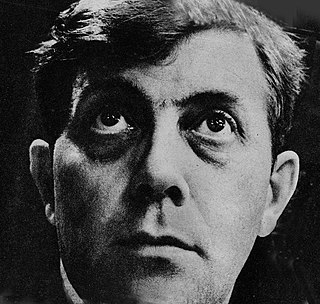
Wiktor Zin was a Polish architect, graphic artist, professor, architectural preservationist, cultural activist, and promoter of Polish history and culture.
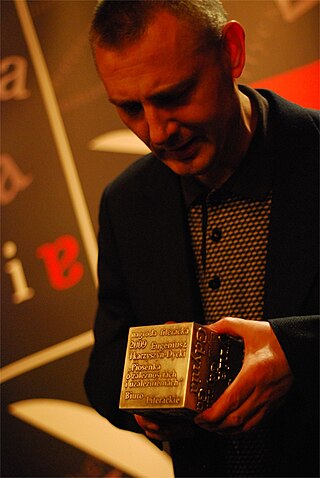
Eugeniusz Tkaczyszyn-Dycki is a Polish poet.

Mariusz Adam Szczygieł is a Polish journalist and writer. He is the winner of the 2009 European Book Prize for Gottland and the 2019 Nike Award, the most important prize in Polish literature, for his reportage Nie ma.

Wiesław Myśliwski is a Polish novelist. He is a two-time recipient of the Nike Award, the most important literary prize for Polish literature.

Jarosław Marek Rymkiewicz was a Polish poet, essayist, dramatist, translator and literary critic. He ws the recipient of the 2003 Nike Award, Poland's most important literary prize.
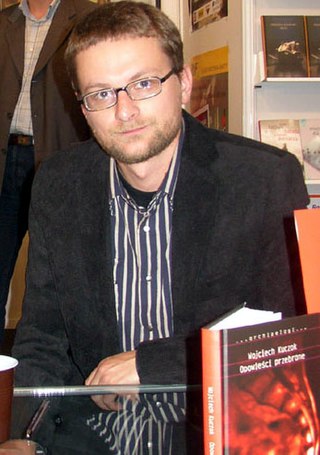
Wojciech Kuczok is a Polish novelist, poet, screenwriter, film critic and speleologist.
Joanna Lech – a Polish poet and writer. Author of Zapaść, Nawroty, Trans, Piosenki Pikinierów and Sztuczki. Graduate of the Literary-Arts faculty of Jagiellonian University in Kraków. Lives in Kraków.
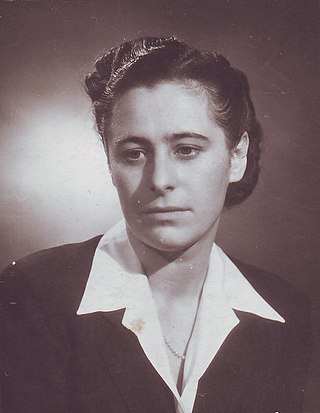
Zofia Chądzyńska or Sophie Bohdan, was a Polish writer and translator of the Iberoamerican literature. Her first book was published in French under a pseudonym of Sophie Bohdan, entitled "Comme l'ombre qui passe", Publisher: Paris : Calmann-Lévy, 1960. Later she was publishing in Polish under her original name Zofia Chądzyńska.
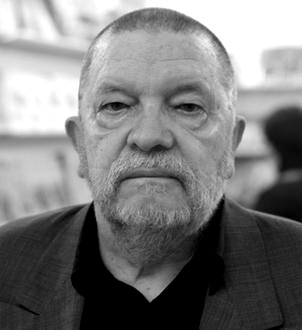
Krzysztof Kąkolewski was a Polish book author, life-long scholar, investigative journalist considered the pillar of the Polish school of reportage, as well as dramatist and screenwriter. He graduated from the Faculty of Journalism in the Warsaw University in 1954 and continued his studies at the University of Strasbourg in 1961. For some 40 years afterwards, he served as a lecturer at his alma mater in the Faculty of Journalism and Political Science between 1964 and 2004. Kąkolewski himself, became the subject of a TV documentary produced by Telewizja Polska as well as biography written by Marta Sieciechowicz and published in 2009 by Von Borowiecky publishing house as Potwór z Saskiej Kępy, ISBN 9788360748121. He was the author of over 30 non-fiction books with the total circulation of 1.5 million copies, and the recipient of numerous national awards and honours.
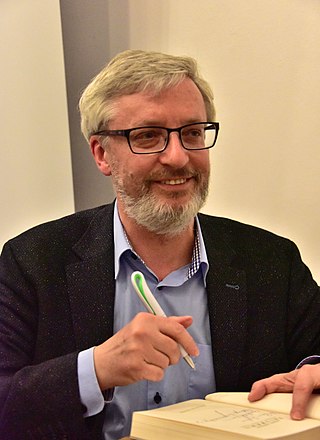
Jacek Leociak is a Polish literary scholar and historian as well as author. He is a professor of humanities and an employee of the Institute of Literary Research at the Polish Academy of Sciences and the Polish Center for Holocaust Research in Warsaw.
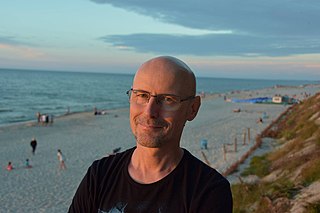
Marcin Sergiusz Przybyłek is a Polish science fiction author, business trainer, coach, computer games designer and consultant, a medical doctor by education.

Maciej Hen is a Polish writer, translator and journalist.

Anna Janko, is a Polish poet, writer, columnist and literary critic.
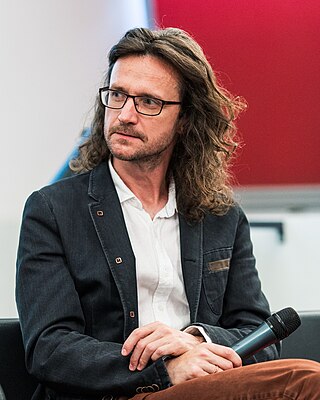
Maciej Płaza is a Polish writer, literary scholar and translator of English literature.

Adam Wodnicki was a Polish professor, writer, and translator. He translated many works from French into Polish.

Marek Bieńczyk is a Polish writer, historian of literature, translator, essayist and oenologist. In 2012, he won the Nike Award, Poland's top literary prize, for his collection of essays Book of Faces.




















